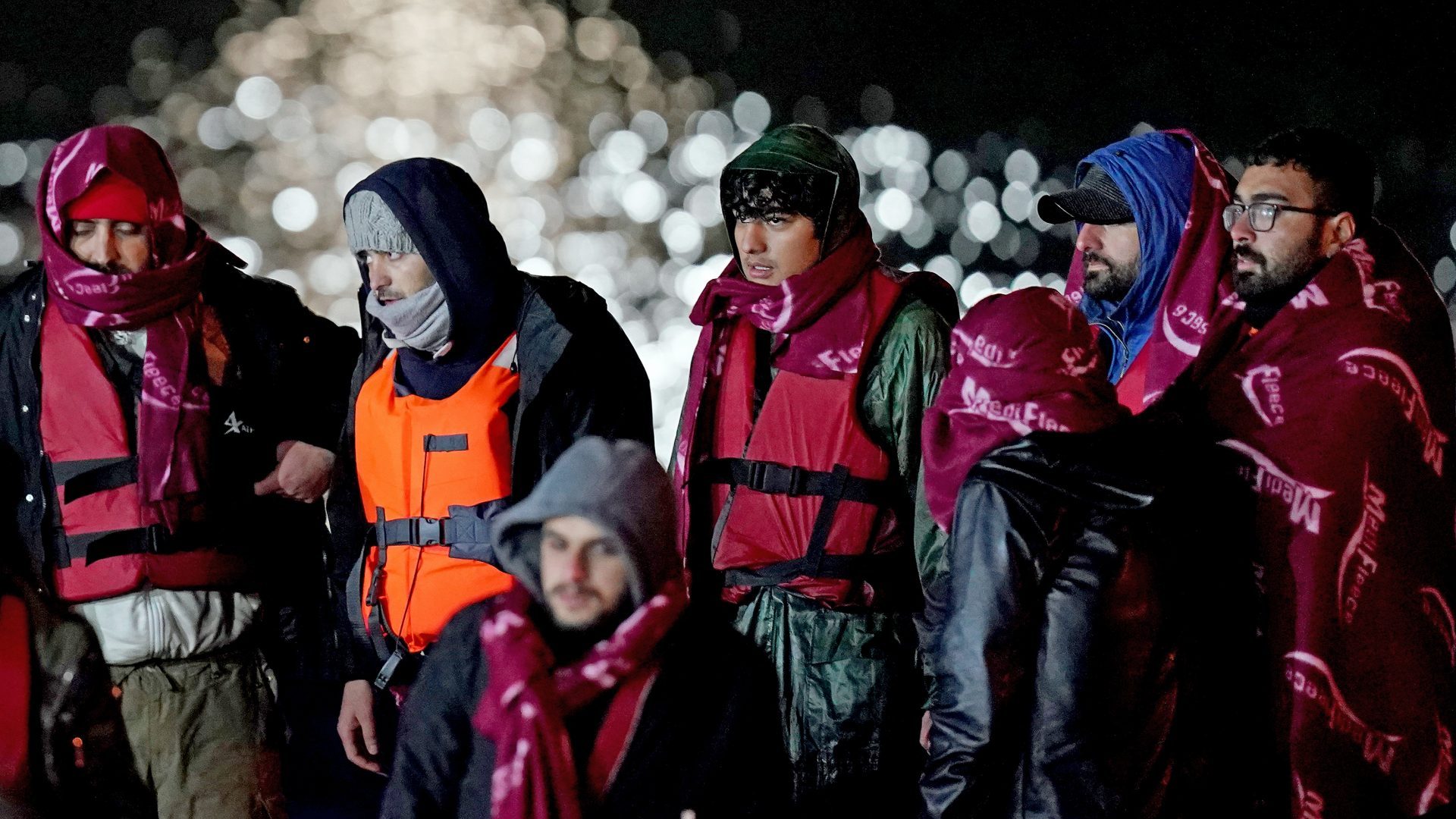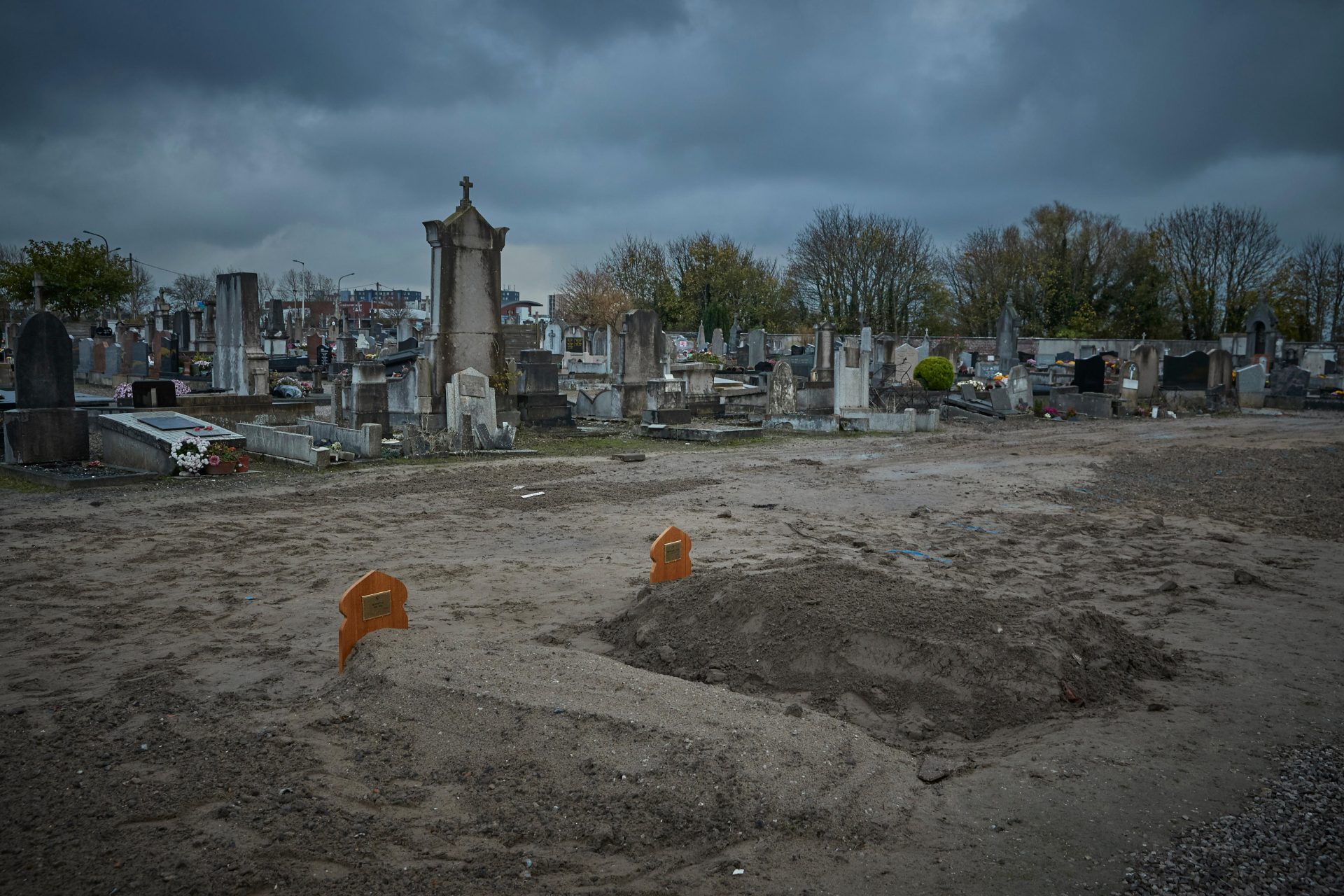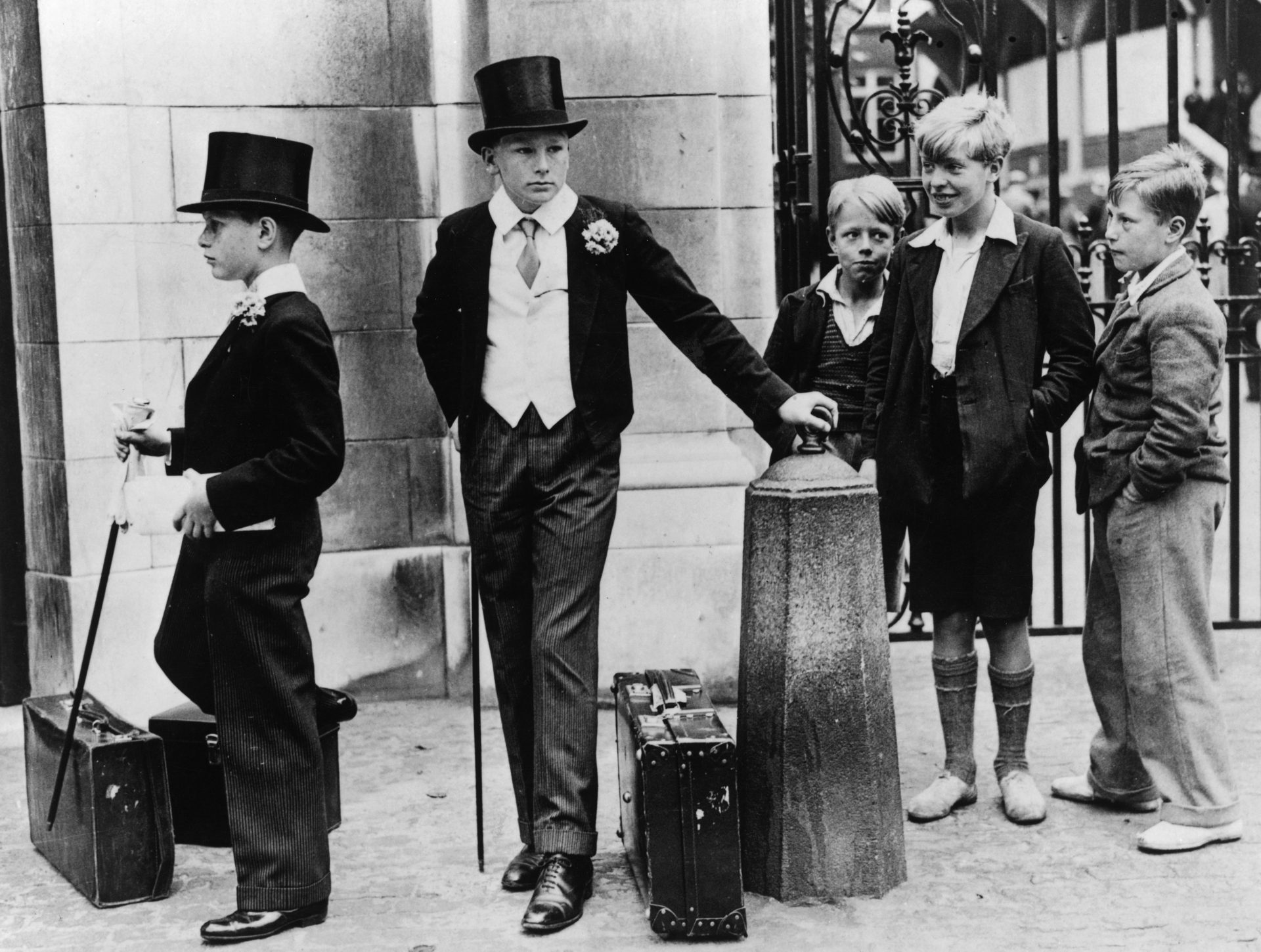In September 2015, the body of a little boy in a red t-shirt and blue shorts was found, face-down, at the water’s edge of a Turkish beach.
Three-year-old Aylan Kurdi had drowned, with his elder brother and mother, unable to cling any longer to their upturned dinghy. The family had set out on the 13-mile journey to the Greek island of Kos, but had been at sea for only four minutes before their people-smuggling captain had taken flight at the sight of the waves ahead, dived into the water and left his 12 charges to their fate.
Aylan’s father, Abdullah, had tried to control the boat, but it flipped in the high waves. So did another dinghy with a further 11 people aboard. Abdullah, a barber fleeing the war in Syria, was rescued after three hours in the water. Twelve of the 23 refugees died.
Newspapers tend not to carry photographs of dead people if they can avoid it, but the Independent broke with convention to devote its entire front page to the image of Aylan (who has since been called Alan) lying in the water. It was too harrowing for anyone else, and most used a picture of a Turkish soldier cradling the child as he walked up the sand, usually with an emotive headline using words like “unbearable”, “human” and “tragedy”.
The next day the Sun set up an appeal to help a refugee charity, raising £350,000 within 24 hours, and urged David Cameron – who had recently rejected suggestions that Britain should take in 10,000 refugees – to change his mind and at least accept 3,000 war orphans. Readers quickly got in touch to offer foster homes.
This from the newspaper that five months earlier had run a column in which such refugees were described as cockroaches under the headline “Rescue boats? I’d use gunships to stop migrants”.
The death of Aylan Kurdi felt like a moment; the moment realisation dawned that the people trying to get from Africa and the Middle East to Europe were not vermin but human beings; the moment ugly rhetoric and political mudslinging would stop. There was much criticism of the EU’s “dithering” and of the failure to tackle smuggling gangs, but maybe governments and agencies would now act in common cause to find a way to help these desperate people – people whose desperation had, in part, been caused by the actions of the West. If only.
Six years on, and another tragedy – this time much closer to home – is supposed to feel like another “moment”. The smuggling gangs are still finding ways to profit from despair; political mudslinging continues: the French are accused of inaction, the British of dithering. But, again, for a moment, our newspapers have been forced to recognise that “migrants” are not sponging terrorists out to destroy the British Way of Life, but – mostly – ordinary people putting themselves through extraordinary ordeals just to try to survive.
The slight change of tone is welcome, but experience suggests it is unlikely to last. Rather, the 27 deaths off Calais are likely to provide ammunition that will embolden those whose wider political agendas are advanced by the demonisation of refugees and asylum-seekers and by making it even harder for them to settle here. Even on day one of this latest tragedy, rather than focus on the human story of those who had perished, the Mail, Sun and Express turned their fury on French police “standing idly by” as other refugees carried their dinghy up the beach. They choose to ignore the fact that France has stopped 20,000 people taking to the sea this year.
Leader writers and columnists wring their hands, for a day or so, over the “tragic human cost”, just as Priti Patel talks about stopping people making the “dangerous” journey across the Channel. But the pressure to “do something” about the boat people really has nothing to do with keeping them safe and everything to do with keeping them out.
There is also, as there was six years ago, an underlying imperative to create or preserve a political landscape that certain politicians and newspapers find comfortable. In both cases, it has boiled down to saving the Conservative Party.
In 2015 the number of refugees heading for Europe soared as a result of the conflict in Syria, the aftermath of the Iraq war and the ongoing situation in Afghanistan. The idea that unwonted numbers of these displaced people wanted to come to the UK was perpetuated both by Faragists and by sections of the Press, and given added weight by the vast camp outside Calais called the Jungle. In those days, the preferred smuggling route was in lorries crossing the Channel, either on ferries or through the tunnel. As today, the French were routinely berated for failing to stop them. It was an almost impossible – and certainly thankless – task, but over the years security has been strengthened sufficiently to make those routes less appealing. Hence the switch to the more dangerous – and visible – boat crossings.
Why do they want to come here? Family ties, language, the relative ease of finding work in the grey economy. But there aren’t as many refugees who see the UK as Utopia as we are led to believe and nor are we taking in as many as the rhetoric would suggest. Last year, according to Eurostat, Germany dealt with asylum applications from more than 128,000 people, Spain 125,000, France 86,000 and Greece 62,000. Of those, around 166,000 were allowed to stay. Our government figures show that we had fewer than 40,000 applications and said “yes” to about 2,000.
Most of the others, plus tens of thousands more who arrived in previous years, are in limbo waiting for the Home Office to decide their fate. Barred from working, they have to live in state-provided accommodation with £40 a week pocket money to feed and clothe themselves. The biggest problem is not the arrivals, but the failure to make decisions on those already here.
But who needs context? Hostility towards Europe and “migrants” had been fermenting for years, but it really started bubbling in 2013 as the day that Romania and Bulgaria would have full access rights as EU members approached. Pressure grew for a referendum on our membership of the community and when David Cameron won a surprise overall majority in the 2015 election, he had no choice but to keep his promise of a plebiscite.
For the Leave-campaigning Press, “migrants” – from wherever they came and for whatever reason – were now pawns in the bigger chess game. Leaving Europe would not only prevent freedom of movement for Poles and Lithuanians, but also somehow magically stop people coming from outside the EU – from India or Pakistan or Jamaica – or from reaching our shores illegally. Nigel Farage warned “there will be bodies on our beaches” if we didn’t leave the EU. But he offered no explanation as to how “regaining our sovereignty” would enable us to outlaw activities that were already illegal.
In the eight months before Aylan died, our tabloid newspapers ran 52 front pages about the foreigners plaguing our country, with splash headlines such as “Illegal migrants flood in”, “Migrant invasion out of control”, “Migrants swarm to Britain” and “Send in army to halt migrant invasion”. After the little boy drowned, there was a brief hiatus of compassion, but normal service resumed within the week and there were a further 51 hostile tabloid front pages in the last four months of the year. These included “Asylum bid by Libyans in sex rampage” and “1m migrants pour into the EU”.
Indeed, they did. According to Eurostat, the 28 members of the EU received 1,322,900 asylum applications that year – of which only 40,200 were made to Britain. Our own government statistics put the figure even lower, at 32,733, of which just under half were successful.
But the real agenda was getting out of Europe and “freedom of movement” was the jemmy. And so we saw an acceleration in the weaponisation of any and all migrants. If people from across the world could make it to Europe and establish a right to stay, they would be able to come here at will. Millions of them. They would over-run us.
In the first half of 2016, up to the June 23 poll, our national newspapers published 174 front-page leads about “foreigners”, most of them hostile – this newspaper printed them all, under the headline “The real Project Fear”. After the Brexit vote, there was a dip until the autumn when the Calais Jungle was cleared and child refugees started arriving. By the end of the year, the final tally was 277, with the Express and Mail accounting for almost exactly half.
Once the Brexit vote was secured, the peril seemed miraculously to disappear – from the front pages, at least. Yet the net migration figure for last year was 313,000, compared with 329,000 in 2015. Hardly a big Brexit benefit. Remember all the fuss about Theresa May’s failure to get that figure down below 100,000? Once we had left the EU, it seemed not to matter. And the numbers seeking – and being granted or refused – asylum were also fairly constant.
But the home secretary has been fretting about the “illegals” and is driving through legislation to make their lives more difficult. So far she has blamed France, the EU, the “broken” asylum system, her own staff and “activist” lawyers for the situation for which she carries responsibility. Suggested solutions have included paying France (well, promising to pay, but not actually parting with the money) to patrol their coast; turning boats back in mid-Channel (which the putative turners-back refuse to do for fear of risking lives and breaking international law), and putting Border Force officials on armoured jet skis to intercept boats. If all that fails and our unwanted guests make landfall, the next step could be to send them to our overseas territories, such as Gibraltar or the Falkland Islands, to other countries – Albania is current favourite – or to any old ship that can be commandeered, while their asylum applications are considered. Or while the “migrants are processed”, as Patel so charmingly puts it.
None of these has yet proved to be the answer, so for the time being, people are being put up in hotels, b and bs, and a disused Army barracks that – like the detention centre in Russell T. Davies’s dystopian Years and Years – is a petri dish for disease (in real life it was, of course, Covid). The home secretary inexplicably declined to visit. She has also, for some reason, ruled out allowing people to apply for asylum here while in another country – “safe” or not. That is apparently a complete no-no; better they risk their lives to get here before being sent back to where they came from.
The thinking (if you can call it that) seems to be that if you’ve escaped hell, anywhere will do, so you don’t need to come here. By that logic, landing points such as Turkey, Greece, Italy – and now Poland with the Belarussian horrors – would have to take every lost soul, while rich countries further north would help none. And heaven forbid that people who have lost everything should cling to their self-will; how dare they exercise a preference as to where they want to live if it’s too dangerous for them to stay at home.
Some papers have picked up the fight. The Times, which was more restrained when Fleet Street went peak anti-migrant before the referendum, has been in the vanguard this time. It has splashed on the Channel boat people and Patel’s efforts to keep them out a dozen times this year, including three last week before the Calais tragedy. The Express described the surge in attempted crossings – three times as many people have landed here so far this year as did in the whole of 2020 – as a “national emergency”. This – as opposed to a thousand a week dying of Covid or six million waiting for hospital treatment – is, according to all sorts of people, the issue that is causing MPs most grief, both on the doorsteps and in their postbags.
Really? How strange then, that in its latest “issues that most concern the public” poll, published today, Mori-Ipsos found that only 11% of people questioned mentioned immigration or asylum, so that it ranked eighth behind climate change, Covid, the NHS, Brexit, the economy, poverty and inequality, and whether we could trust the Government. A similar poll for YouGov found twice as many people worried about immigration, but they were still more concerned about health, the economy, the environment and Brexit.
Still, as we saw on Wednesday, Patel was right to fret. People are dying.
If only we could believe that that was the reason that she and the Conservative-supporting Press had been so worried. The thing is, until yesterday, the danger to life had been almost a side issue in the political debate and in the press coverage. The Express’s “national emergency” line came courtesy of Sir Edward Leigh during a Commons debate in which he said: “It’s clear that in this we have lost control. If you tell the most desperate economic migrants in the world that we will provide a free border service, taxi service across the Channel, we will never deport you, will put you up in a hotel as long as you like, is it any wonder that more and more come? This is now a national emergency. Will the home secretary bring in an emergency powers act to override the Human Rights Act if necessary and put these people in secure accommodation now, otherwise we won’t solve the problem.”
So the problem is not the risk of people dying, but the risk of their settling here. And the solution is to ignore their human rights and lock them up.
Wrong. This is not a “national emergency”; it is an international challenge. One that requires sober co-operation, not baying to the crowd.
And anyway, why are these arrivals such a problem – beyond the obvious one of encouraging others to put their lives in further danger? Surely we can absorb 26,000 desperate souls?
And who are they? Nobody seems interested to find out beyond their nationalities. These are people who have paid traffickers thousands of pounds for their unsafe passage. They had to earn the money somehow, so they are unlikely to be the dregs of Middle Eastern society; they could be doctors, nurses, teachers, people we actually want. It turns out that a survivor of one boat that did make it to Kent last week was an Afghan officer who had worked with British and American forces.
As The Times pointed out in a leader last weekend, the “problem” lies largely in the “optics”: overall numbers of people arriving and claiming asylum are going down, but the proportion coming on highly-visible boats has risen dramatically. This doesn’t look good for a Government that promised to take back control of its borders and Conservative MPs are alarmed. The Times reports that Boris Johnson parachuted Stephen Barclay in to “fix the migrant problem” and oversee moves to stop the boats after MPs told him that the “migrant crisis risks becoming a big electoral issue”. So the concern was not for the safety of the asylum-seekers, not even for the safety of people with an irrational fear of them, but for the safety of Conservative seats.
A more brazen call for Johnson to turn the situation to his advantage came the very day before that paddling-pool boat capsized off France. For Trevor Kavanagh in the Sun, this was the “chance” the prime minister needed to show the world he was not a buffoon. Broken promises, rebellious MPs, sleaze, tax rises, inflation, “any number of unforced blunders” and Peppa Pig speeches had done him no good at all. “Yet despite everything, all is not quite lost,” wrote Kavanagh. “There is still time in the Christmas panto season for Bojo the Buffoon to turn once more into the Great Houdini, escaping disaster at the last second. Boris must take swift and decisive action to restore his battered authority.”
Action of any kind apparently. What he needed was an eye-catching initiative – and stopping the migrant boats would do very nicely.
Again, not because of the risks to the people crammed on to them, but because those people might be terrorists and were almost certainly Muslim. And because it would spike Nigel Farage’s guns.
“Farage is ready to return to frontline politics, mopping up Tory votes in Red Wall seats at the next election,” Kavanagh continued, quoting a government source as saying: “Nigel smells blood. It’s the only major issue the prime minister can seize upon immediately to prove he means business.”
In short, this is a national newspaper executive urging the prime minister to use people’s misery as an electoral tool.
But here’s another view, from a parliamentary briefing by the Refugee Council: “Concerns about the number of people arriving to claim asylum in the UK are misplaced. The numbers must be understood within the wider context of global displacement, and asylum claims across Europe. Doing that shows that the UK takes a low and manageable number of refugees, and continuing to do so is the compassionate and achievable approach.
“Claims that reform is needed to make it harder to claim asylum, or to remove people more easily, are not grounded in an understanding of the current asylum and legal system, and ignore powers that already exist.
“The UK is one of the world’s richest countries and can afford to protect the world’s most vulnerable people. It should be proud to do so, rather than trying to exclude those who seek our protection.”
Quite.




